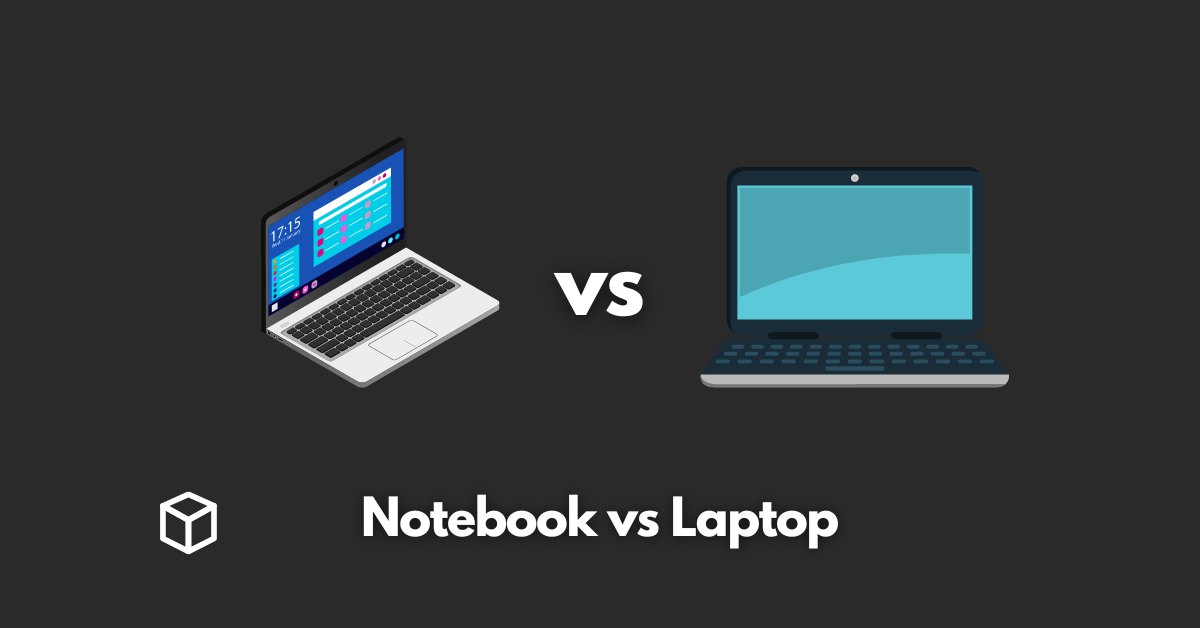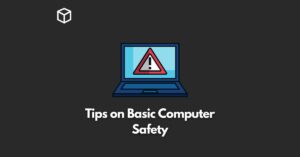When it comes to choosing a device for personal or professional use, the decision can often come down to a notebook or a laptop.
Both types of devices have their own set of advantages and disadvantages, and it’s important to understand the differences before making a purchase.
The main purpose of this blog post is to provide a detailed comparison of notebooks and laptops, in order to help readers make an informed decision.
Background about Notebook and Laptop
A notebook is a type of portable computer that is lightweight and easy to carry around.
It is often smaller in size and has less powerful hardware compared to a laptop.
A laptop, on the other hand, is a portable computer that is larger and heavier than a notebook.
It has more powerful hardware and is often used for more demanding tasks.
Design and Portability
When it comes to design and portability, notebooks have a clear advantage over laptops.
Notebooks are smaller and lighter in weight, making them easy to carry around and use on the go.
They are also more compact, making them a better choice for those who are always on the move.
However, laptops also come in a variety of designs and sizes, with some models being just as portable as notebooks.
Ultrabooks, for example, are a type of lightweight and slim laptops designed for portability.
So, it’s important to consider the specific model of laptop and its design features before making a decision.
Performance and Hardware
When it comes to performance and hardware, laptops have an advantage over notebooks.
Laptops generally have more powerful processors, graphics cards, and memory, making them better suited for demanding tasks such as video editing, gaming, and running multiple programs at once.
Notebooks, on the other hand, have less powerful hardware and are better suited for basic tasks such as web browsing, email, and word processing.
However, it’s important to note that there are high-performance notebooks available that can handle demanding tasks, but they are generally more expensive.
Display and Input
When it comes to display and input, laptops and notebooks are quite similar.
Both types of devices have high-resolution displays, with some models featuring touch capabilities.
However, laptops generally have larger displays, making them better suited for tasks that require a larger screen, such as video editing or graphic design.
When it comes to input, both laptops and notebooks have touchpads and keyboards, but some laptops also have a built-in touch screen.
Further, some laptops have a stylus input, which is useful for tasks such as drawing or note-taking.
Battery Life and Connectivity
When it comes to battery life and connectivity, notebooks have an advantage over laptops.
Notebooks generally have longer battery life due to their smaller size and lower power consumption.
They also have a variety of connectivity options, such as Wi-Fi, Bluetooth, and USB.
Laptops also have good battery life and connectivity options, but they are generally not as long-lasting or versatile as those found on notebooks.
Price and Value
When it comes to price and value, notebooks are generally less expensive than laptops.
This is due to their smaller size and fewer hardware options.
However, the value of a device can vary depending on the specific needs of the user.
For example, a high-performance laptop may be more expensive, but it may be a better value for someone who needs to run demanding tasks.
It’s important to consider your specific needs and budget before making a decision.
For example, if you are looking for a device for basic tasks and portability, a notebook may be a better choice.
On the other hand, if you need a device for demanding tasks and a larger screen, a laptop may be a better option.
Conclusion
In conclusion, notebooks and laptops are both great options for personal and professional use, but they have their own set of advantages and disadvantages.
When making a decision, it’s important to consider factors such as design and portability, performance and hardware, display and input, battery life and connectivity, and price and value.
Further, it’s important to consider your specific needs and budget.
It is recommended that readers consider their specific needs and budget before making a decision, and also take into account the latest models and designs to make an informed choice.
Frequently Asked Questions
Q: What is the main difference between a notebook and a laptop?
A: The main difference between a notebook and a laptop is their size and power. Notebooks are smaller and less powerful, while laptops are larger and more powerful. Notebooks are more portable and are better suited for basic tasks, while laptops are better suited for demanding tasks and have more powerful hardware.
Q: Which is better for gaming, a notebook or a laptop?
A: Laptops are generally better for gaming due to their more powerful hardware and larger screens. However, there are high-performance notebooks available that can handle gaming, but they are generally more expensive.
Q: How long does the battery life last on a notebook compared to a laptop?
A: The battery life on a notebook is generally longer than that of a laptop due to its smaller size and lower power consumption.
Q: Are there touch screen laptops?
A: Yes, there are laptops with touch screens available, but they are generally more expensive than traditional laptops.
Q: Can I use a notebook for video editing?
A: While notebooks can handle basic video editing, laptops are generally better suited for this task due to their more powerful hardware and larger screens.




